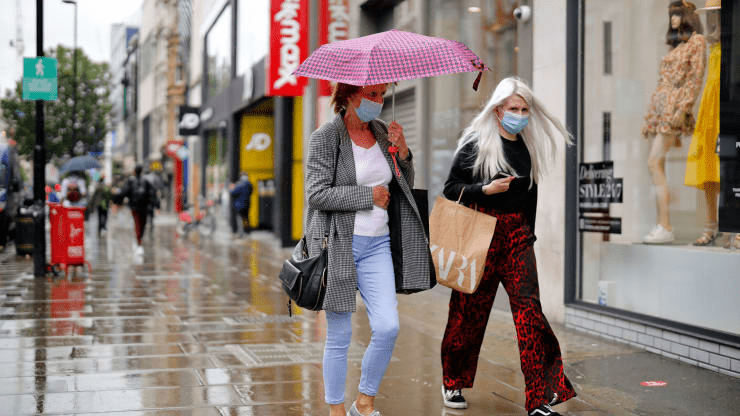Economists warn of U.K. jobs crisis ahead of crucial budget
July 07, 2020 @ 19:58 +03:00
U.K. Chancellor of the Exchequer Rishi Sunak will deliver a fresh set of policy initiatives on Wednesday as Britain looks to spark an economic recovery from the coronavirus pandemic. In his March budget, Sunak announced a £30 billion ($39 billion) spending package to tackle the immediate health and labor market impact of the pandemic and the nationwide lockdown it forced. Markets have since become accustomed to significant support announcements from the chancellor, and additional assistance from the Bank of England’s monetary policy bazooka.
However, with markets stabilized, lockdown mostly lifted and the virus seemingly under control in the country, few are expecting the kind of fiscal fireworks Sunak has delivered in the past.
“Instead, expect Sunak to announce targeted measures to lift the flagging parts of the economy and those areas that may struggle under the continued social distancing measures,” Berenberg Senior Economist Kallum Pickering said in a note Tuesday. For example, on Sunday the government announced a £1.6 billion package to support the arts sector.
The U.K. economy has contracted sharply since the beginning of the pandemic, with April’s 20.4% fall in gross domestic product the steepest monthly decline on record. Meanwhile borrowing surged to £103.7 billion ($128.9 billion) in the April-May period, meaning public sector debt surpassed GDP for the first time since 1963.
However, central to the country’s ability to weather the economic storm so far has been the furlough scheme, which has supported more than 30% of the nation’s jobs and meant that the steep drop in output has not filtered through to the labor market as yet. The program has been credited with preventing the country’s looming recession from morphing into a deep and prolonged depression.
Sunak has previously indicated that the furlough scheme is likely to be tapered from August and end in October, but Credit Suisse has projected that this could result in unemployment rising from 3.9% to 10%, or 3.5 million people, in the second half of the year.
In a note Monday, the bank’s economists suggested it was unlikely that the 9.3 million furloughed workers would be reabsorbed into the jobs market, with the end of furlough bringing about another wave of redundancies.
Credit Suisse urged Sunak to either extend the furlough scheme beyond October or replace it with a scheme that subsidizes wage costs or cuts National Insurance contributions for the sectors likely to be hardest hit, like retail, travel and hospitality.
Mike Bell, global markets strategist at JPMorgan Asset Management, told reporters at a virtual roundtable Tuesday that the British economy was “propped up in a state of suspended animation” by the furlough scheme. He warned that many of the currently furloughed workers would end up unemployed once the scheme is lifted as a number of sectors struggle to recover.
Temporary National Insurance cuts are among the potential policy initiatives floated in advance of Sunak’s speech, along with subsidies for businesses hiring trainees. Other possible announcements include a temporary cut to VAT (currently at 20%), a reduction or scrapping of the property tax known as stamp duty for properties worth up to £500,000, and temporary exemptions to business property taxes.
Economists warn of U.K. jobs crisis ahead of crucial budget, CNBC, Jul 7







